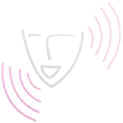|
|
|
Cobertura
Especial Study
of FIRE’s Internet Audience Reveals Impact of Feminist Communication
Strategies New York, March 5,
2005 RIF/FIRE Using women’s alternative media to enhance audience interactivity and help empower women is the focus of a groundbreaking new study soon to be published in Feminist Media Studies. The research is described in a journal article entitled, “Women’s Alternative Internet Radio and Feminist Interactive Communications: Audience Perceptions of Feminist International Radio Endeavour (FIRE).” María Suárez of FIRE will present the final research results for the first time at a panel on March 7, 2005 sponsored by APC WNSP, as part of the Beijing +10 activities in New York. The panel, entitled, “Leveraging ICT policy process for women’s empowerment: What’s gender go to do with ICT policies?” will include FIRE as one of several grassroots examples of women working at the local and global level with ICTs and efforts to influence policy. FIRE is the first international Internet radio produced by women, with a primary objective of providing a channel of communication for women’s voices and perspectives, and particularly women of the Global South. Based in Costa Rica, FIRE is produced in Spanish and English. Few communication studies have been conducted on Internet audiences beyond analysis of web statistics. This three-year multi-method study on the audience of FIRE shows that FIRE’s communication strategies of “connecting voices, technologies and actions” enhance interactivity of the audience in a variety of ways. Using a combination of ICTs and traditional radio, FIRE engages its global audience through a feminist democratic communications process. As described in the journal article, this interactive process involves the exchange and multiplication of information from FIRE, amplifying women’s voices through their testimonials and strategies. FIRE also enhances work towards social change through connecting audience members to social and political movements and also in connecting movements with each other. Such an interactive communications process may help build a feminist network democracy that empowers women in exercising their human right to communication. The results of the FIRE audience research also show that FIRE is an important news source for audience members because it “places women at the center” by presenting women’s voices and perspectives on all issues. Audience members also said they go to FIRE’s web page because it is feminist and progressive, and it presents alternative perspectives and proposals on a variety of issues. A questionnaire by Norma Valle and FIRE for a previous study of FIRE´s short wave radio audience done in 1996 served as a basis for in-depth questions used for this study. The research involved analysis of web statistics on the FIRE web page, an Internet survey in Spanish and English of 154 audience members, and analyses of hundreds of letters from 136 countries received from audience members. It was conducted by Dr. Margaret Thompson of the University of Denver, in collaboration with FIRE´s co-directors, Katerina Anfossi and María Suárez Toro. As noted in the journal article, the study is significant for a number of reasons, including filling a gap in knowledge and understanding of the use and impact of ICTs as tools in producing alternative media, in this case, Internet radio. It also shows the importance of looking at the impact of ICTs as an interactive communications process, which affects not only the individual user but also at a broader political level in empowering and activating users, and reinforcing and connecting social and political movements around the world. Also significant about this study of FIRE is that it clearly illustrates to the importance to the audience of this alternative way of producing media in the hands of women, and its potential as a feminist interactive transformative process. For more information
about FIRE—Feminist International Radio Endeavour, go to their webpage
at: www.fire.or.cr or write to FIRE
at oficina@radiofeminista.net
|



